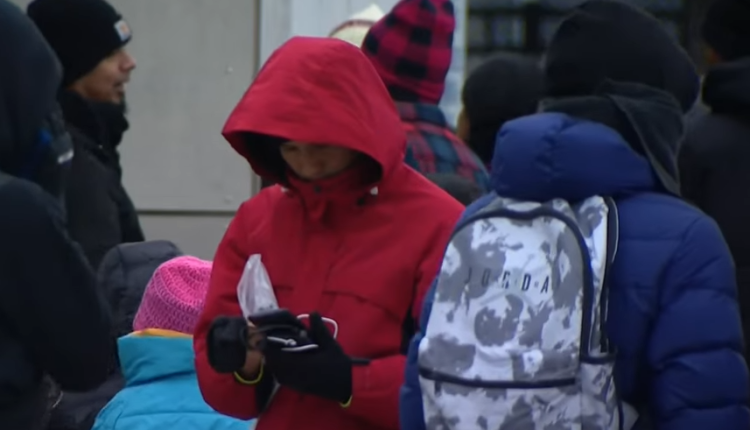Chicago’s Effort to Assist: Extending Migrant Shelter Stays Amid Housing, Employment Challenges
Mayor Brandon Johnson of Chicago extends the city’s 60-day shelter stay limit for asylum seekers, preventing potential eviction of nearly 2,000 migrants just before a looming deadline.
The decision, made public on Monday, aims to provide individuals with more time to resettle and find employment.
The policy change grants an additional 30 to 60 days for approximately 14,000 migrants already residing in the city’s 28 shelters, which range from warehouses to park district buildings. This extension marks the third time Chicago has delayed enforcement, with previous delays attributed to inclement weather conditions.
Mayor Johnson emphasized that the city’s temporary emergency shelter plan was never intended as a long-term housing solution.
However, he expressed a commitment to affording every migrant and family ample time to obtain work authorization, secure housing, and embark on a new life within the city.
Chicago, alongside other US urban centers like New York and Denver, faces challenges in accommodating and supporting the increasing influx of migrants arriving by various means of transportation. City leaders, including Mayor Johnson, have implored the federal government for additional assistance in managing the situation.
Chicago’s Influx of Migrants Since 2022

Extensions to shelter stays will be determined based on migrants’ original exit dates, offering either 30 or 60 additional days. For instance, nearly 2,000 individuals slated for eviction on Thursday will now benefit from an extra 60 days.
However, city officials noted that less than half of them had accessed rental assistance to facilitate independent living.
New arrivals to the shelter system will still be subject to the standard 60-day limit, with exceptions made for pregnant individuals or those with medical conditions. Once evicted, individuals must reapply for shelter accommodations.
Since 2022, Chicago has received over 35,000 migrants, largely directed by Texas Governor Greg Abbott. Approximately 11,500 have been resettled through a state program, while about 4,100 have exited the shelter system after reconnecting with friends and family.
Criticism of Chicago’s shelter limits, particularly in winter months, has been voiced by some aldermen concerned about the well-being of new arrivals. Recent attention to shelter conditions heightened following the tragic death of a young boy experiencing a medical emergency in December.

